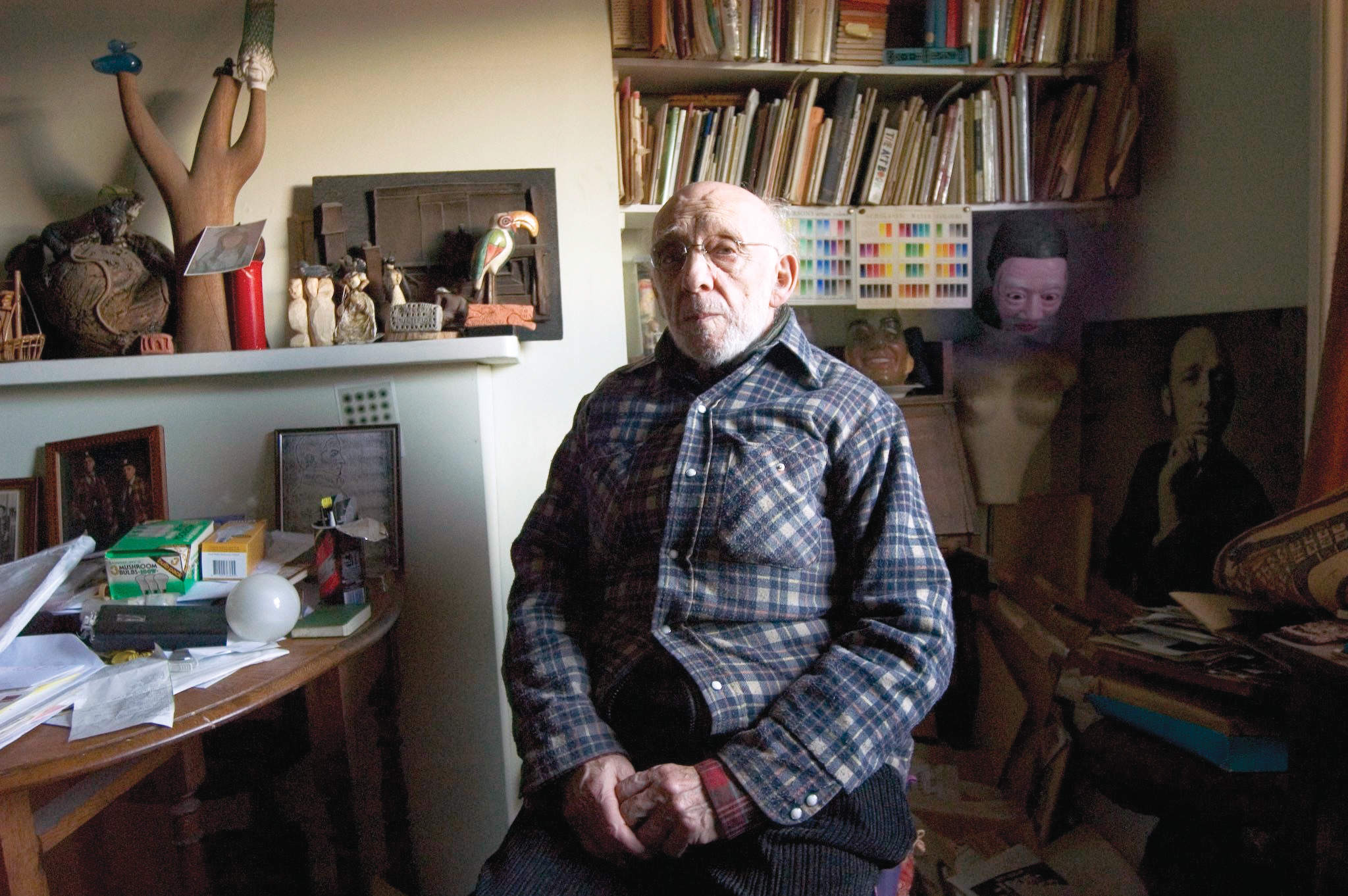
Every year, as autumn approaches, I find myself thinking about the great Scots humorist Ivor Cutler, with whom I used to go on long rambles around various parks and public gardens back in the 1990s. We made these walks in all seasons, but autumn delighted us most and my fondest memories are of him at Kew Gardens, surrounded by falling leaves, or at RHS Wisley’s apple days, when it sold the flavoursome and sometimes wonderfully irregular apples that supermarkets disdain.
We loved the old varieties that had otherwise fallen by the wayside, as the world moved relentlessly towards a global monoculture – and we’d go a long way to find an Ashmead’s Kernel, or a Beauty of Bath. It’s ten years since Ivor died, but whenever I find a good apple, I think of him.
One of my favourite sayings from his work (which seemed determined to pass for slight and ephemeral, when it was, in fact, pungent and lasting) can be found in a book he did in 1991 with the artist Martin Honeysett, Fly Sandwich and Other Menu. “Living creatures,” he writes, “completely unaware of Man’s immortal soul, see him only as a vicious destructive creature with an infinite capacity for making a mess, unable to relate to the Earth and without aesthetics.” The irony, of course, is in our assumption that “Man” has an “immortal soul”: though I still guard the hope that we’re not all viciously destructive, the evidence for the prosecution is pretty damning. Nevertheless, there are ways to remind ourselves that we are not masters, but dependants, no matter how far we go to pretend otherwise.
When I knew Ivor, I lived in Surrey, a good county for foraging, and foraging was what I did all through the autumn and into the winter, gathering apples, plums and bullace from a ruined walled garden a few miles from where I lived, or sweet chestnuts from the woods around Wisley. I made sloe gin for Christmas; I dug horseradish from some old allotments now faced with a characterless housing development. When the season was right I gathered blueberries at a spot outside Godalming.
There are rules when it comes to foraging, all based on sharing – on leaving enough for the birds, and for other foragers. Living off nature also demands that we value the oddities: the strangely contoured, the pockmarked, the sweetly bruised.
Ivor used to carry a pocketful of stickers wherever he went, applying them to walls, signposts and even parked bicycles whenever he felt they were needed. They were printed with cryptic notes and odd words of wisdom, gifts to whosoever passed. My favourite said SLIGHTLY IMPERFECT.
What I enjoyed most about foraging were the imperfections, making the most of what I’d found. Washing the fruit releases its natural scents and there is patient pleasure in peeling, pricking and cooking.
It’s something I miss, on my windy Fife hillside, where I can’t grow anything much beyond alpines and dwarf conifers, and the pickings from foraging are thin, in terrain given over to sheep and gorse. But yesterday a good neighbour from “down below” brought a box of plums and apples and all afternoon I have been washing and cooking, making food for today and food to store.
For a few hours I felt like I was back in my old kitchen, where I often made enough jam to last several months, and when the first batch was done I’d take a jar up to London, for Ivor. One of the most generous people I knew, he delighted in playing the skinflint, and his main pleasure in accepting this gift came, he claimed, was in knowing that it was free. He knew, of course, the labour that had gone into its making, but the truest compliment he could offer was to pretend to take all that for granted.
This article appears in the 28 Sep 2016 issue of the New Statesman, May’s new Tories





